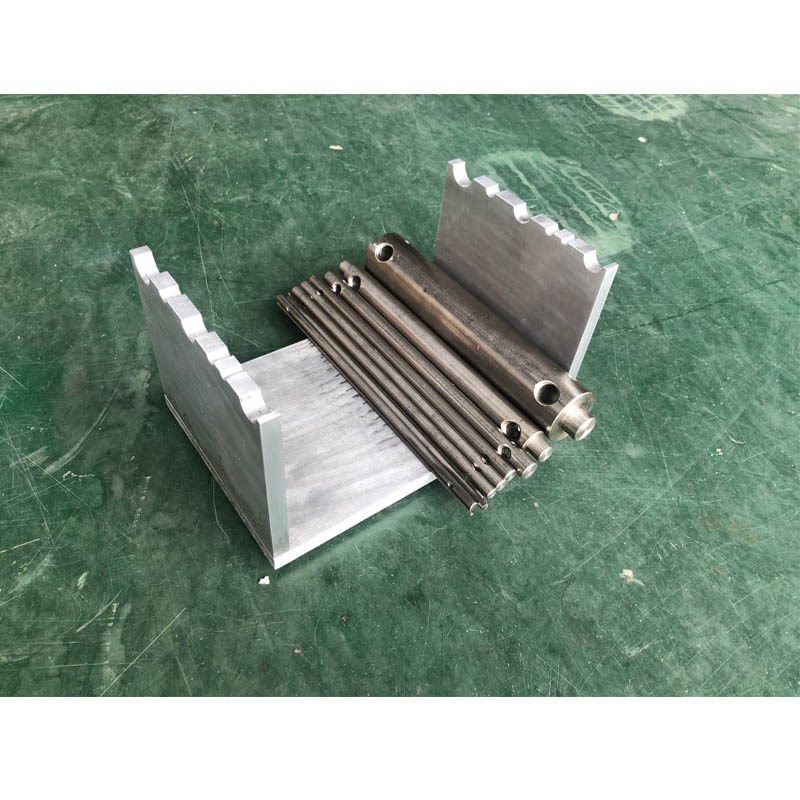ASTM D412 Standard for Tensile Testing of Elastomers in Industrial Settings
Understanding the ASTM D412 Tensile Tester for Rubber Materials
In the realm of materials testing, especially when it comes to rubber and elastomers, the ASTM D412 standard test method for tensile properties stands out as a crucial process. It is essential for manufacturers and quality control laboratories to possess an in-depth understanding of this testing method, as it provides significant insights into the mechanical properties of rubber materials. This article will explore the significance of the ASTM D412 tensile tester, its methodology, and the reasons why factories and manufacturers should invest in this equipment.
What is ASTM D412?
ASTM D412 is a standard test method established by ASTM International, designed to determine the tensile properties of rubber, vulcanized or thermoplastic. The test primarily measures the tensile strength, elongation at break, and modulus of elasticity of the rubber specimens. These properties are critical for evaluating the performance and durability of rubber materials in various applications, from automotive parts to medical devices.
In this testing procedure, standard specimens are subjected to a uniaxial tensile load until failure, allowing for the evaluation of key mechanical properties. The results are essential for manufacturers to ensure that their rubber products meet industry standards and customer expectations.
The Testing Process
The ASTM D412 testing process involves several stages
1. Sample Preparation Rubber samples are cut into standardized shapes, typically a dumbbell or straight-sided configuration. This ensures uniformity and accuracy in the results.
2. Equipment Setup The tensile tester must be appropriately calibrated and set up according to the ASTM specifications. This involves adjusting the grips, ensuring proper alignment, and verifying the load cell's accuracy.
3. Testing Procedure The rubber specimen is placed in the jaws of the tensile tester. The machine is then operated to apply a controlled and constant rate of elongation until the specimen breaks. The force exerted and the elongation are continuously recorded.
tensile tester astm d412 factory

4. Data Analysis After the test, data is analyzed to generate stress-strain curves. Key metrics such as tensile strength, elongation at break, and tensile modulus are calculated and reported.
5. Reporting Results The results must be documented and presented in a format that aligns with industry standards, ensuring traceability and compliance.
Importance of ASTM D412 Testing
The ASTM D412 tensile tester offers several vital advantages for factories and manufacturers in the rubber industry
1. Quality Assurance By regularly conducting tensile tests, manufacturers can ensure that their products meet the required specifications for strength and flexibility. This practice reduces the risk of product failure and enhances customer satisfaction.
2. Material Selection Understanding the tensile properties of various rubber formulations allows manufacturers to select the most suitable materials for specific applications, which can lead to improved performance and cost savings.
3. Regulatory Compliance Many industries require compliance with specific standards. Utilizing the ASTM D412 standard helps manufacturers demonstrate that their products adhere to industry regulations, which can be crucial for market access.
4. Research and Development For companies engaged in R&D, the tensile properties obtained from ASTM D412 tests can serve as a foundational dataset for developing new rubber formulations and optimizing existing products.
Conclusion
In summary, the ASTM D412 tensile tester is an indispensable tool for manufacturers and laboratories engaged in rubber testing. By providing a standardized method for evaluating the tensile properties of rubber materials, it plays a critical role in quality assurance, regulatory compliance, and innovation in product development. Investing in a reliable ASTM D412 tensile tester is not just a matter of keeping up with industry standards; it is a strategic decision that enhances product durability, customer satisfaction, and ultimately, the bottom line in a competitive market. As innovation continues to drive the rubber industry forward, understanding and utilizing standardized testing methods like ASTM D412 will remain key to success.
-
Why the Conductor Resistance Constant Temperature Measurement Machine Redefines Precision
NewsJun.20,2025
-
Reliable Testing Starts Here: Why the High Insulation Resistance Measuring Instrument Is a Must-Have
NewsJun.20,2025
-
Flexible Cable Flexing Test Equipment: The Precision Standard for Cable Durability and Performance Testing
NewsJun.20,2025
-
Digital Measurement Projector: Precision Visualization for Modern Manufacturing
NewsJun.20,2025
-
Computer Control Electronic Tensile Tester: Precision and Power for the Modern Metal Industry
NewsJun.20,2025
-
Cable Spark Tester: Your Ultimate Insulation Assurance for Wire and Cable Testing
NewsJun.20,2025
 Copyright © 2025 Hebei Fangyuan Instrument & Equipment Co.,Ltd. All Rights Reserved. Sitemap | Privacy Policy
Copyright © 2025 Hebei Fangyuan Instrument & Equipment Co.,Ltd. All Rights Reserved. Sitemap | Privacy Policy
